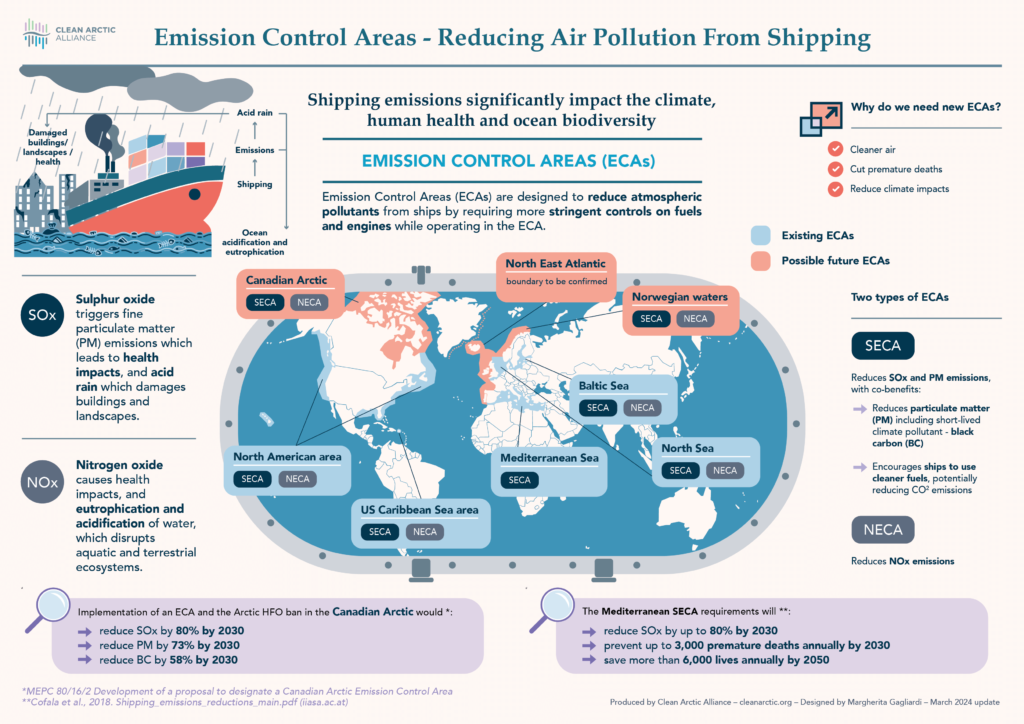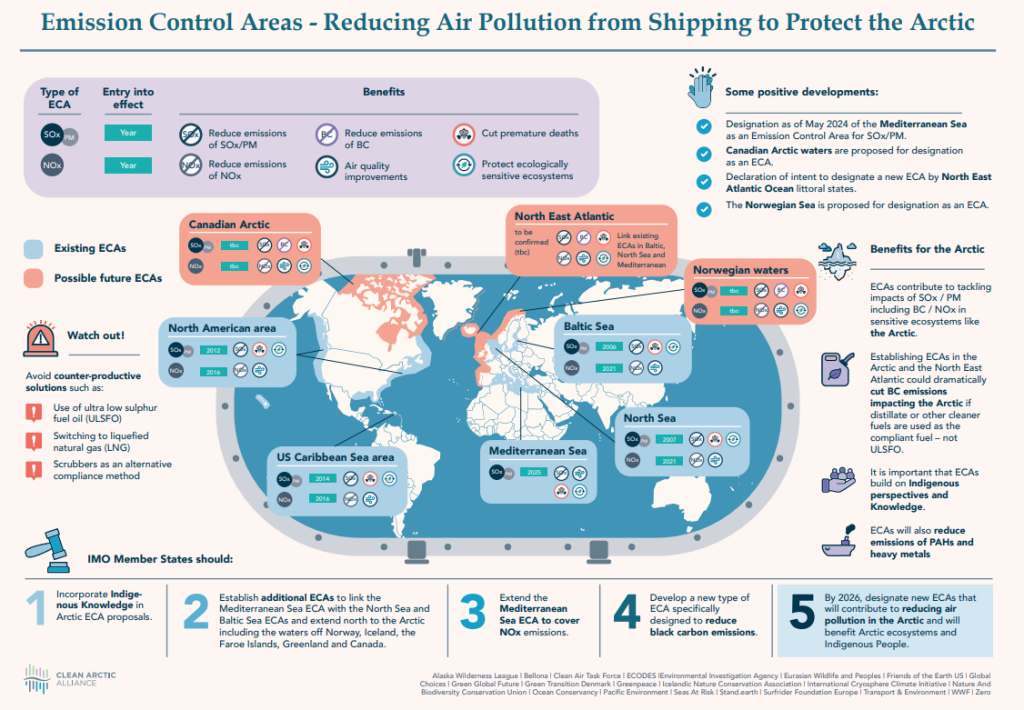As a meeting of the International Maritime Organization’s Marine Environment Protection Committee (IMO, MEPC 81) gets underway, the Clean Arctic Alliance urged IMO member states to agree to creation of new areas in the Arctic which will be protected from polluting air emissions from shipping.
As explained, the two Emission Control Areas (ECAs) proposed by Canada and Norway, will, if agreed upon by the IMO, provide additional protection from air emissions in Canadian Arctic waters and the Norwegian Sea by reducing emissions of sulphur oxides (SOx), particulate matter and nitrogen oxides (NOx) from international shipping.
The creation of Emission Control Areas in the Arctic will set an important precedent for protection of our climate and our ocean. The designation of ECAs in Canadian Arctic Waters and the Norwegian Sea has the potential to drive broad positive change, especially if the shipping sector complies with the designation by switching to low-sulphur distillate fuels or other cleaner non-fossil fuels.
..said Dr Sian Prior, Lead Advisor to the Clean Arctic Alliance.
The proposal for an ECA in Canadian Arctic waters recognises that the designation will reduce polluting air emissions from ships, improve air quality for northern populations, deliver benefits to both marine and terrestrial ecosystems and also potentially contribute to a reduction in climate-forcing black carbon pollution in the Arctic.
..continued Prior. “The Norwegian Sea ECA will reduce impacts on human health and contribute to reduced deposition of nitrogen and sulphur along the Norwegian coast, including a 58% reduction in particulate matter, such as black carbon, by 2030 compared with 2020. Both ECAs will significantly reduce air pollution from ships in the Arctic.”
Underwater noise, Black Carbon, Scrubbers, and the Carbon Intensity Indicator (CII)
Prior said that the Clean Arctic Alliance is also calling for MEPC to adopt an underwater noise action plan which was finalised earlier this year. The action plan will support the use of guidance to reduce underwater noise which also provides co-benefits in the form of energy efficiency and reducing CO2 emissions. Several other crucial issues were slated for inclusion at MEPC 81, but have now frustratingly been kicked down the road to MEPC 82 this autumn. These include addressing black carbon emissions, and the use of scrubbers and discharge of scrubber wastewater”,
“It is extremely disappointing, amidst a global climate crisis, that the IMO continues to delay on taking short-term measures such as regulating the reduction of black carbon emissions and commencing discussion of a strengthened carbon intensity indicator to reduce greenhouse gas emissions, both of which would provide rapid benefits for the Arctic, and for the planet”, said Prior.
Energy Efficiency of Ships – Carbon Intensity Indicator (CII)
The Clean Arctic Alliance’s focus for efforts to reduce the climate impact of international shipping is on short-term measures such as reducing black carbon emissions and implementing a strong carbon intensity indicator to reduce greenhouse gas emissions, which will see benefits for the Arctic quickly. Although MEPC 82 later this year will start the process of revising the carbon intensity indicator (a short-term measure to reduce greenhouse gas emissions (GHG)), the Clean Arctic Alliance will be using MEPC81 to highlight the changes required.
The Clean Arctic Alliance is calling on IMO Member States, when revising the carbon intensity indicator (CII), to ensure that CII requirements are calibrated to ensure that at least the 2030 and 2040 ‘striving’ emission reductions specified in the 2023 IMO GHG Strategy are met and, are ambitious enough to put shipping on an unambiguously 1.5°C compliant pathway.
..said Prior.
An effective enforcement mechanism, making sure that emission reductions are reliable and real will also be required as will a long-term CII requirement that requires continued future improvements in operational efficiency and no backsliding on operational efficiency gains.
..concluded Prior.


































































